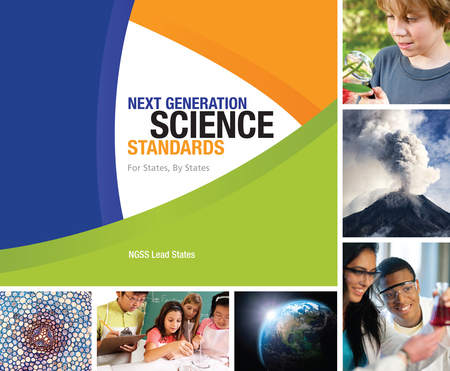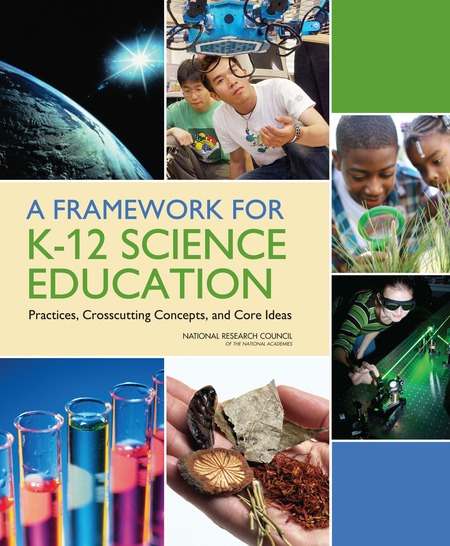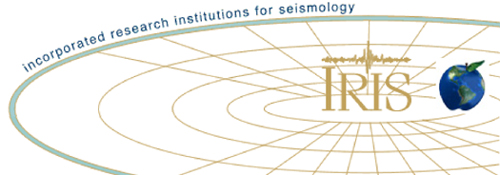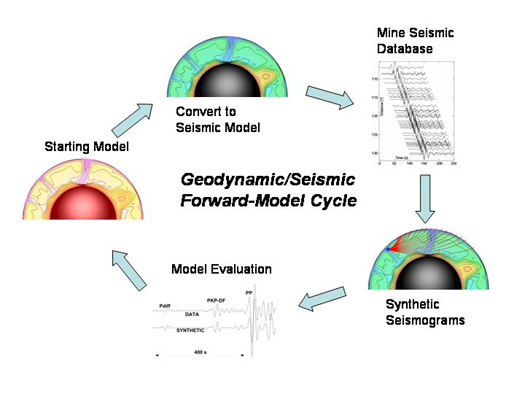Center for Teaching and Learning

Michael Wysession is Executive Director of the Center for Teaching and Learning (CTL) at Washington University. The CTL advances educational excellence through evidence-based pedagogical support, assistance for learners, and classroom design. The CTL advances the educational mission of WashU by supporting a diverse community of teachers and learners. We promote inclusive, evidence-based pedagogy, develop teaching-focused collaborations among campus partners, and strive to create a transformational educational experience inside and outside the classroom. The three divisions within the CTL are:
1) Educational Development
- Promoting evidence-based classroom practices that improve student learning and engagement, in order to increase student success;
- Initiating and sustaining collegial conversations about teaching and learning at WashU;
- Fostering a culture of reflective teaching practice that values collaboration, innovation, and inclusivity;
- Cultivating an environment that engages in the scholarship of teaching and learning; and
- Supporting instructors in pedagogical development through all stages of their academic careers.
2) Classroom Services
- Researching and validating the latest educational technologies in support of student success;
- Designing state-of-the-art custom classrooms to meet the current and future demands of flexible teaching modalities and collaborative, inclusive, and active learning;
- Supporting instructional use of more than 120 technology-infused classrooms with immediate on-call deployment and planned maintenance and upgrades; and
- Collaborating with other departments on support of educational technology tools while providing immediate on-call support to the campus community.
3) The Learning Center
- Supporting undergraduate students’ college transition and continued success through academic mentoring programs;
- Facilitating collaborative learning communities among students in foundational courses;
- Coaching students to utilize academic skills that promote engaged, self-directed, and life-long learning; and
- Training undergraduate mentors in evidence-based pedagogy to improve the mentoring experience.
The Center for Teaching and Learning teams collaborate to ensure that our work is informed by knowledge about best practices in teaching, instructional technology and other tools. We have a shared commitment to Washington University’s mission of excellence in teaching, learning, and research.
_______________________________________________________________________
Perspectives of Earth and Space Scientists

Michael Wysession is currently the Editor-in-Chief for the journal Perspectives of Earth and Space Scientists, published by the American Geophysical Union. Perspectives is an open-access collection of memoirs, essays, and insights by AGU fellows and other invited authors reflecting on important scientific discoveries, advances, and events in Earth and space science. These open access articles are intended to be read and understood by the larger geosciences community and the general science-interested public. Each Perspectives article, a single article/commentary, will take a high-level view of how each scientist’s work reflects the past, present, and future of their specific field or of an area the scientist is heavily involved in, such as education. The perspective provide personal reflections/examples in the author’s scientific life, including pitfalls and negative results as well as breakthroughs or triumphs. Articles are intended for a larger Earth and space science community.
Wysession has previously been an editor for four other journals of the American Geophysical Union: Geophysical Research Letters (2009-2015), responsible for papers addressing deep earth structure; Journal of Geophysical Research: Solid Earth (1994-1996), Eos (1998-1999), and Computational Seismology and Geodynamics (1992-1994).
_______________________________________________________________________
Next Generation Science Standards

Michael Wysession was on the organizing team and Chair of the Earth and Space Science (ESS) Writing Team that wrote the K-12 Next Generation Science Standards (NGSS) that have been adopted or adapted by 45 U.S. states and the District of Columbia. The NGSS represent a remarkable advance for K-12 science education, encouraging a three-dimensional approach to learning science that involves the integration of the science and engineering practices, content, and cross-cutting concepts. The NGSS encourage that performance expectations be met through the student investigations of engaging storylines of instruction that are built upon important and relevant anchoring and investigative phenomena. The NGSS also represent a watershed moment for geoscience education, as they require roughly a year’s worth of Earth and space science in high school as well as in middle school, with a significant part of high school science addressing science and engineering aspects of climate systems and climate change. In the near future, for the first time in this nation’s history, the majority of students going to college will have had a year of complex, practice-based, systems-focused, data-oriented, transdisciplinary and mathematically rigorous high school Earth and space science.
_______________________________________________________________________
National Research Council: A Framework for K-12 Science Education

Wysession was Chair of the Earth and Space Science Design Team for the National Academy’s National Research Council report that established the framework from which the Next Generation Science Standards were written. This Framework for K-12 Science Education was based on current research in both science and science education, and defined the three dimensions of science and engineering practices, disciplinary core ideas, and crosscutting concepts. Wysession assembled and Chaired the committee that constructed the Earth and space science content, broken out by grade bands, that all Americans should understand through the new NGSS-aligned curricula.
_______________________________________________________________________
Earth Science Literacy Initiative

Wysession was Chair of the NSF-sponsored Earth Science Literacy Initiative, which created the geoscience literacy framework, the Earth Science Literacy Principles (ESLPs). The ESLPs consist of 9 Big Ideas and 75 Supporting Concepts that define the essential understandings of Earth science. As part of the process of its construction, we organized a 12-person organizing committee that ran a 2-week online workshop for 350 participants, ran an in-person writing workshop of 35 people, and supervised the finalization, construction, publishing, and dissemination of the ESLPs. This literacy framework has been used in many educational settings, forming the foundation for textbooks, curricula, educational proposal RFPs, as well as having more than 150,000 copies distributed in classrooms, museums, and national and state parks around the world. Most importantly, it provided the basis for the geoscience content that informed the NRC Framework for K-12 Science Education, which, in turn, informed the Next Generation Science Standards. Wysession continue to maintain the Earth Science Literacy website, which also houses a set of educational videos that accompany the ESLPs, produced by the American Geoscience Institute.
_______________________________________________________________________
IRIS (Incorporated Research Institutions for Seismology)

Wysession has served the Incorporated Research Institutions for Seismology (IRIS) in a variety of capacities, including the Executive Committee and Board of Directors, for over 25 years. Founded in 1984 with support from the National Science Foundation, IRIS is a consortium of over 100 US universities dedicated to the operation of science facilities for the acquisition, management, and distribution of seismological data. IRIS programs contribute to scholarly research, education, earthquake hazard mitigation, and verification of the Comprehensive Nuclear-Test-Ban Treaty. IRIS is in the process of merging with UNAVCO. Most significantly, Wysession was Chair of the Education and Outreach Committee during 2005-2009, where he helped implement the development and dissemination of many educational products such as the Seismographs in Schools, SeisMac, museum-based seismograph displays, the Rapid Earthquake Viewer, and the earthquake Teachable Moments. Wysession helped to write two of the IRIS 5-year proposals, including editing the 2005 “1-Pagers” document (see the introduction), and also wrote the deep-Earth portions of the EarthScope 2010-2020 science plan, Unlocking the Secrets of the North American Continent, and the Seismological Grand Challenges in Understanding Earth’s Dynamic Systems document.
_______________________________________________________________________
CIG (Computational Infrastructure for Geodynamics)
 The Computational Infrastructure for Geodynamics (CIG) is a membership-governed organization that supports and promotes Earth science by developing and maintaining software for computational geophysics and related fields. Wysession was one of the original writers for the proposal that created the program at the National Science Foundation, and was on the on the Computational Seismology Steering Committee for more than 15 years.
The Computational Infrastructure for Geodynamics (CIG) is a membership-governed organization that supports and promotes Earth science by developing and maintaining software for computational geophysics and related fields. Wysession was one of the original writers for the proposal that created the program at the National Science Foundation, and was on the on the Computational Seismology Steering Committee for more than 15 years.
_______________________________________________________________________
On The Cutting Edge


Wysession was a co-PI for On The Cutting Edge (OTCE), which was a comprehensive, discipline-wide professional development program for geoscience faculty that offered an integrated workshop series, a website with topical collections of teaching resources, and a leadership development program. OTCE aimed to develop a geoscience professoriate committed to high-quality instruction based on currency in scientific knowledge, good pedagogic practice, and research on learning with the ultimate goal of improving student learning. Wysession co-ran multiple geoscience professional development workshops (in-person, online, hybrid, content-based, early career, etc.) that exposed university faculty to current progressive ideas in classroom pedagogy. Wysession also worked to help maintain a database on the SERC website of geophysical classroom activities, digital demonstrations, and visualizations to help provide the geophysical community with a reliable, high-quality, peer-reviewed set of digital educational materials.
_______________________________________________________________________
NASA Course: Earth, Moon, and Mars

Wysession constructed and taught a 3-day course on the geology of the solar system, Earth, Moon, and Mars, on-site to NASA employees at many different NASA centers. This course remains part of the NASA APPEL digital education program. Although NASA engineers build vehicles that have to survive on different planetary surfaces, they had little formal education through NASA on the geology of these planets and moon. This course, the only one of its kind, gives NASA engineers a background in Earth-based geology and in how this is modified in different planetary scenarios. The focus is on the geology of the moon and Mars, but other planetary objects are also studied. The course was taught 13 times in-person, at NASA JPL, KSC, GSFC, MSFC, JSC, and LRC, and is now regularly streamed online by NASA engineers.
_______________________________________________________________________
General Public Outreach About Science and Education
Wysession regularly appears on radio, TV, and podcasts on a variety of topics related to earthquakes, climate change, science education and other geoscience topics. Here is a selection of appearances.
-
Co-host of “The UnXplained: Earth’s Unsolved Mysteries,” a 1-hour documentary show on the History Channel, April 21, 2023. (site)
-
Co-host of “The UnXplained: Devastating Disasters,” a 1-hour documentary show on the History Channel, December 9, 2022. (site)
-
Co-host of “The UnXplained: Wonders of the Ancient World,” a 1-hour documentary show on the History Channel, October 7, 2022. (site)
-
Third Pod From the Sun (AGU Podcast), Storied Careers: What You Didn’t Learn in Geo(Science) Class (September 16, 2022).
-
Third Pod From the Sun (AGU Podcast), The Not-So-Secret Histories of Scientists (September 9, 2022).
- Half-hour video interview for The Climate Pod (Frankenstein and Climate Change: Monsters of Our Own Making) (Oct 29, 2021)
- NPR radio interview on Missouri K-12 science education (Nov 27, 2019)
- Co-hosting Season 1, Episode 4, of the 2019 History channel show The Unexplained, on unexplained geologic phenomena.
- NPR (St. Louis) radio interview on Mid-Continent Rift (Dec 16, 2016)
- NPR (Buffalo) radio interview on Mid-Continent Rift (Nov 21, 2016)
- NPR Science Friday interview with Ira Flatow on seismology (Oct 28, 2016)
- TV video interview for HED-TV on forensic seismology and urban warfare (Apr, 2016)
- WashU Hold that Thought podcast on teaching about climate change (Mar, 2015)
- Washu Hold that Thought podcast about teaching K-12 geoscience (Mar, 2015)
- Interviewed in a 2011 History Channel documentary, Journey to the Earth’s Core.
- Video interview with the St. Louis Science Center about the 2011 Japan earthquake (Mar, 2011)
- NPR (Kansas City) radio interview about earthquakes (Apr 22, 2008)
- KMOX (St. Louis) radio interview on seismic hazards in Missouri and Illinois (Apr 22, 2008)
- A radio interview (July, 2007) with KMOX on the seismic hazards in St. Louis. KMOX (St. Louis) radio interview on the New Madrid fault (Jul, 2007)